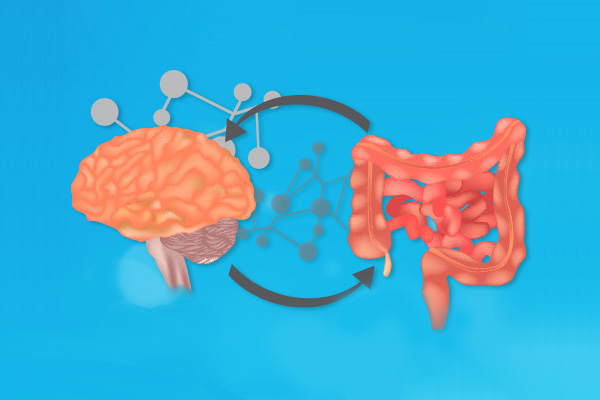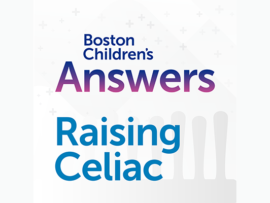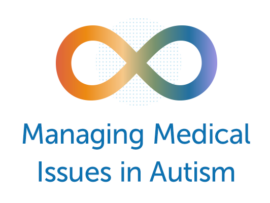The Brain-Gut Connection: Evidence-Based Psychological Strategies for Treatment of Gastrointestinal Symptoms (18 hrs.)
This skills-focused workshop will educate community mental health providers on the most recent research about the brain-gut connection and outline evidence-based treatments for clients presenting with a variety of GI symptoms. Using lecture, clinical examples, and skill-building activities this 18-credit/hr course will equip clinicians to work with clients to improve quality of life and reduce gastrointestinal symptoms. Presentations for this course were recorded at The Brain-Gut Connection: Evidence-Based Psychological Strategies for Treatment of Gastrointestinal Symptoms on Feb. 1-3, 2023.
$300.00
Description
Assistant Professor of Psychology, Harvard Medical School

Amy Hale, PhD
Attending Psychologist, Division of Gastroenterology, Hepatology, and Nutrition, Boston Children’s Hospital
Assistant Professor in Psychology, Harvard Medical School

Julia Carmody, PhD
Attending Psychologist, Division of Gastroenterology, Hepatology, and Nutrition, Boston Children’s Hospital
Instructor of Psychology, Harvard Medical School

Ryan Davidson, PhD
Attending Psychologist, Division of Gastroenterology, Hepatology, and Nutrition, Boston Children’s Hospital
Instructor of Psychology, Harvard Medical School

Attending Psychologist, Division of Gastroenterology, Hepatology, and Nutrition, Boston Children’s Hospital
Instructor of Psychology, Harvard Medical School

Manuela Villa, PhD
Attending Psychologist, Division of Gastroenterology, Hepatology, and Nutrition, Boston Children’s Hospital
Instructor of Psychology, Harvard Medical School
Laura Distel, PhD
Attending Psychologist, Division of Gastroenterology, Hepatology, and Nutrition, Boston Children’s Hospital
Instructor of Psychology, Harvard Medical School

Samuel Nurko, MD, MPH
Director, Center for Motility and Functional Gastrointestinal Disorders; Director, Functional Abdominal Pain Program
Professor of Pediatrics, Harvard Medical School
Many clients presenting to community mental health providers experience gastrointestinal symptoms including chronic pain, nausea, irritable bowel syndrome (IBS), inflammatory bowel disease (e.g. Crohn’s Disease, Ulcerative Colitis), and avoidant and restrictive feeding disorders (ARFID). Children, adolescents, and young adults with chronic GI problems often miss school, have greater healthcare utilization, and have parents who miss more workdays; they also have higher rates of depression and anxiety than youth with other chronic diseases. Many gastroenterologists routinely refer patients for mental health services, and while mental health providers may be well-versed in treating mental health concerns they may be less familiar with the application of psychological interventions for specific GI symptoms.
This skills-focused workshop will educate community mental health providers on the most recent research about the brain-gut connection and outline evidence-based treatments for clients presenting with a variety of GI symptoms. Using lecture, clinical examples, and skill-building activities this full day workshop will equip clinicians to work with clients to improve quality of life and reduce gastrointestinal symptoms. Presentations for this course were recorded at The Brain-Gut Connection: Evidence-Based Psychological Strategies for Treatment of Gastrointestinal Symptoms on Feb. 1-3, 2023.
At the conclusion of this educational program, learners will be able to:
- Recognize commonly diagnosed pediatric gastrointestinal conditions and describe the biopsychosocial conceptualization and treatment model for these disorders.
- Recall specific GI-focused questions that can be incorporated into the psychological assessment process and the language/metaphors to utilize when discussing the biopsychosocial treatment approach.
- Describe strategies to promote functioning and to maintain/enhance quality of life in pediatric patients diagnosed with gastrointestinal conditions.
- Identify and apply evidence-based psychological treatment strategies for the management of pain and other GI-related symptoms.
- Identify and apply evidence-based psychological treatment strategies for feeding difficulties including avoidant/restrictive food intake disorder (ARFID).
 In support of improving patient care, Boston Children’s Hospital is jointly accredited by the Accreditation Council for Continuing Medical Education (ACCME), the Accreditation Council for Pharmacy Education (ACPE), and the American Nurses Credentialing Center (ANCC), to provide continuing education for the healthcare team.
In support of improving patient care, Boston Children’s Hospital is jointly accredited by the Accreditation Council for Continuing Medical Education (ACCME), the Accreditation Council for Pharmacy Education (ACPE), and the American Nurses Credentialing Center (ANCC), to provide continuing education for the healthcare team.
Social Worker
As a Jointly Accredited Organization, Boston Children’s Hospital is approved to offer social work continuing education by the Association of Social Work Boards (ASWB) Approved Continuing Education (ACE) program. Organizations, not individual courses, are approved under this program. State and provincial regulatory boards have the final authority to determine whether an individual course may be accepted for continuing education credit. Boston Children’s Hospital maintains responsibility for this course. Social workers completing this course receive 18.0 ACE CE continuing education credits.
Psychologist
Continuing Education (CE) credits for psychologists are provided through the co-sponsorship of the American Psychological Association (APA) Office of Continuing Education in Psychology (CEP). The APA CEP Office maintains responsibly for the content of the programs. This course has been approved for 18.0 continuing education credits.
Disclosure Policy
Boston Children’s Hospital adheres to all ACCME Essential Areas, Standards, and Policies. It is Boston Children’s policy that those who have influenced the content of a CE activity (e.g. planners, faculty, authors, reviewers and others) disclose all relevant financial relationships with commercial entities so that Boston Children’s may identify and resolve any conflicts of interest prior to the activity. These disclosures will be provided in the activity materials along with disclosure of any commercial support received for the activity. Additionally, faculty members have been instructed to disclose any limitations of data and unlabeled or investigational uses of products during their presentations.
Disclosure Statement
The following planners, speakers, and content reviewers, on behalf of themselves, have reported the following relevant financial relationships with any entity producing, marketing, reselling, or distributing health care goods or services consumed by, or used on patients:
Julie Snyder, PsyD: None
Amy Hale, PhD: None
Julia Carmody, PhD: None
Laura Distel, PhD: None
Rebecca Kramer, PhD: None
Manuela Villa, PhD: None
Ryan Davidson, PhD: Jazz Pharmaceuticals, Research Consultant
Samuel Nurko, MD, MPH: IHS, Consultant; Allergan, Grant support
Additional information
| Credit Type | |
|---|---|
| Duration | |
| Format | |
| Topic | Behavioral Health, Gastroenterology/nutrition, Psychiatry, Psychology, Social Work |
| Expiration Date | |
| Release Date |







